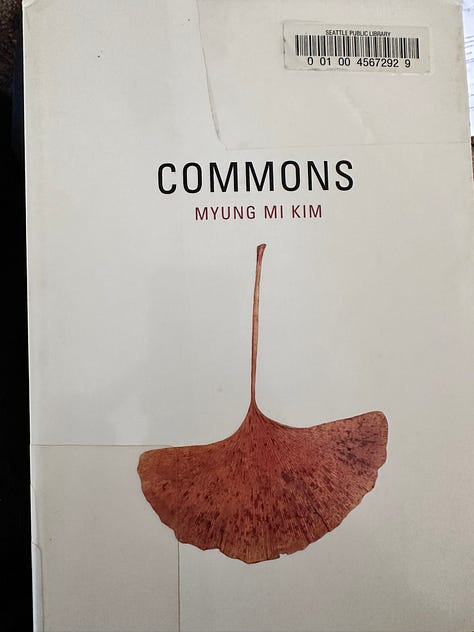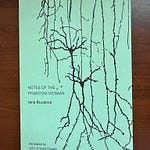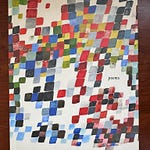


You can find a copy of Commons by Myung Mi Kim here.
Part of the necessity of translated literature, translated poetry, is the decentralization of “English,” as an omnipresence and easily-definable language. “English,” is, for lack of a better term, limp and fungible - defined through its constant re-interpretation by those who come to the language secondarily.
This poem or this essay comes on the back of Trump administration cutting National Endowment for the Arts funding for all presses and publications supporting translated literature as their missions in favor for supporting the creative empowerment of AI technologies. This announcement arriving behind more recently new surveys discussing how students in universities are using ChatGPT and other generative AI engines to complete some 90+% of their coursework, leaving higher-education functionally illiterate.
Translated poetry will always have my utmost respect. It is an imperfect endeavor full with necessary personality and collaboration.
“It is a book that cannot be fully understood without taking into account Kim’s experimentation with language. Commons attempts to collect discarded experiences, dis placed and unidentifiable fragments, and even the silences. Simultaneously, Kim rejects the idea that the inclusion of more data will automatically lead to a “better” archive. What needs to accompany such effort is a different kind of attention or receptivity. What we need is not just a better archive but a poetics of the archive. The “difficulty” of her poetry should be reinterpreted as a demand that her text makes on the readers to broaden our terms of engagement. Language, in this sense, may be our best bid for reaching a broader common ground, the com mons that is yet to come.”
- English Language and Literature Vol. 56 No. 6 (2010) 1125-39 “Here, This Speck and This Speck That You Missed”: A Poetics of the Archive in Myung Mi Kim’s Commons by Eui Young Kim












Share this post